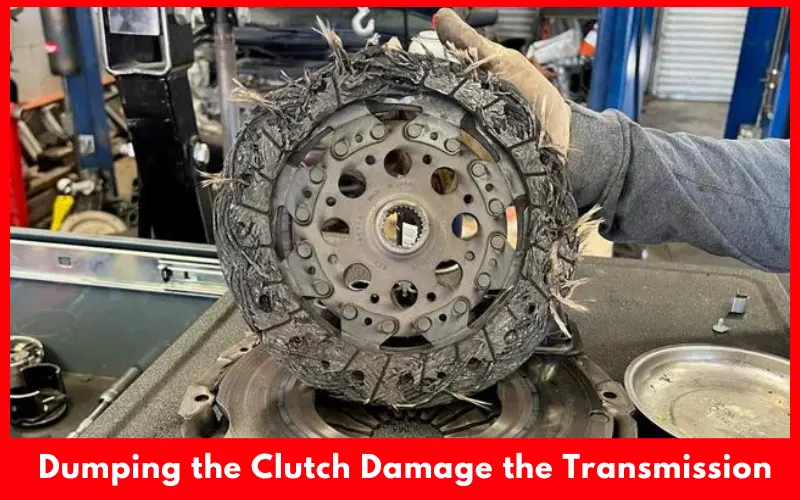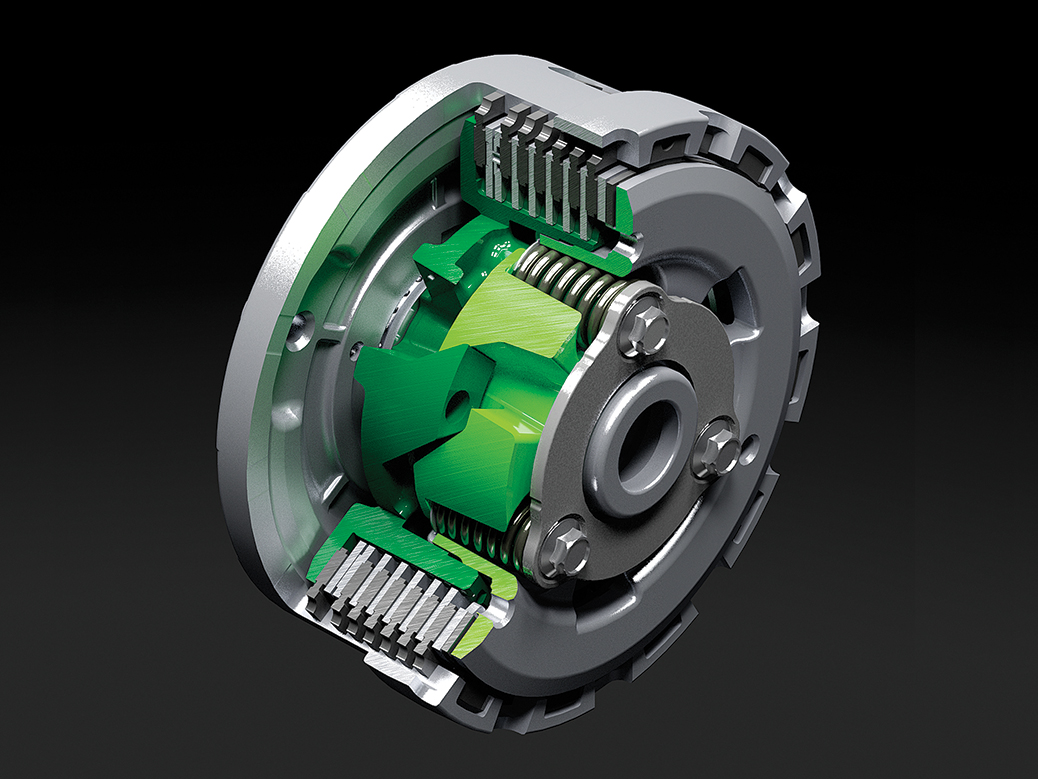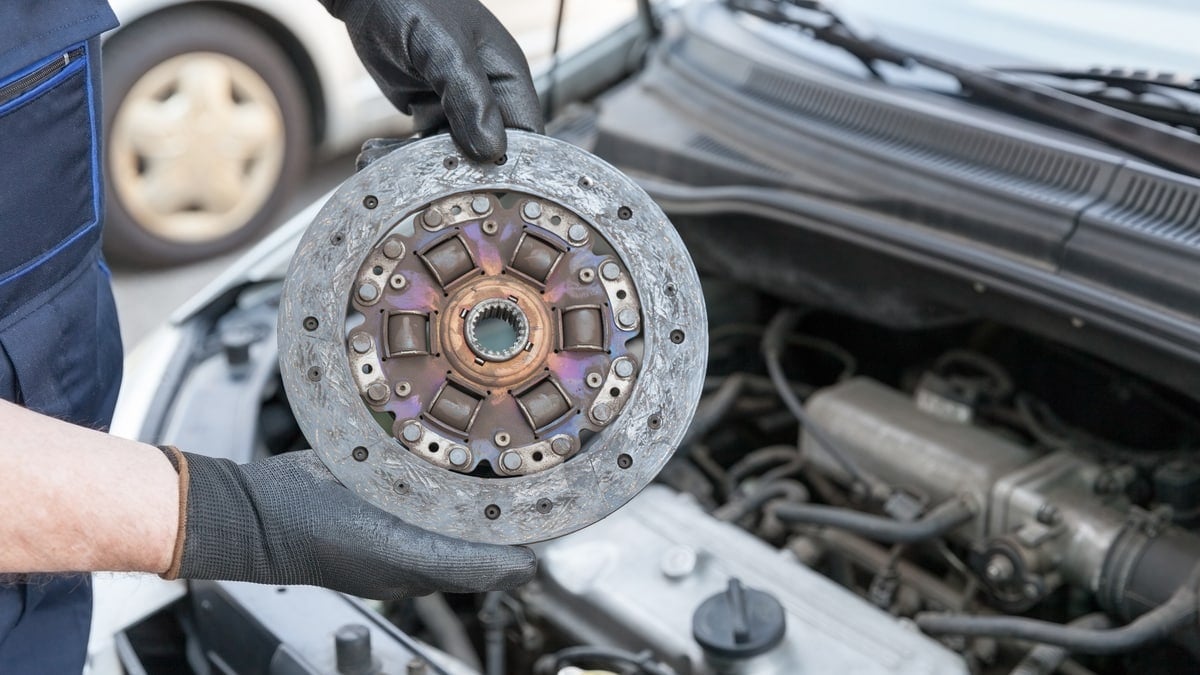Casual Tips About Does Coasting Damage Your Clutch

What Does Dumping The Clutch Mean?
Coasting Conundrums
Alright, let's dive into a question that's probably crossed the mind of every driver at some point, especially when trying to save a few drops of gas: Does coasting, that delightful feeling of rolling along in neutral or with the clutch depressed, actually harm your clutch? It's a common debate, and like many things in the automotive world, the answer isn't a simple "yes" or "no." It's more like a "maybe, it depends," sprinkled with a dash of "you might be better off not doing it."
1. Understanding Clutch Wear and Tear
First, let's break down what the clutch actually does. In a manual transmission vehicle, the clutch is the middleman between the engine and the transmission. It's what allows you to smoothly engage and disengage the engine's power from the wheels. When you press the clutch pedal, you're essentially disconnecting the engine, allowing you to shift gears or come to a stop without stalling. All that friction and engagement takes a toll over time. The clutch disc, the main component of the clutch, wears down with use, much like brake pads.
So, how does coasting factor into this wear and tear equation? Well, when you coast in neutral, the engine is idling, and the transmission is disconnected. This means the clutch disc isn't actively engaged, so in theory, it's not directly wearing down at that specific moment. However, the act of repeatedly engaging and disengaging the clutch to coast and then re-engage can, over the long haul, contribute to wear.
Think of it like this: imagine you're constantly switching a light switch on and off, just for the fun of it. The light bulb might not burn out immediately, but you're definitely shortening its lifespan compared to just leaving it on or off consistently. The same kind of principle applies to your clutch. Frequent, unnecessary engagement and disengagement can contribute to premature wear.
Furthermore, consider the specific situations where people tend to coast. Down long hills, perhaps? Or approaching a stop sign from a distance? Both of these scenarios, whilst seemingly innocuous, can actually be more dangerous (and potentially more costly in the long run) than simply downshifting and using engine braking.

How To Bleed A Clutch DIY Guide With Advice FixMyCar
The Engine Braking Benefit
Speaking of engine braking, this is where things get interesting. Engine braking involves downshifting to a lower gear and using the engine's resistance to slow the vehicle down. This reduces the need to use your brakes, saving them from wear and tear. More importantly, it provides you with better control of your vehicle, especially in slippery conditions.
2. How Engine Braking Helps
When you're in gear, even without pressing the accelerator, the engine is connected to the wheels. As the wheels turn, they force the engine to turn as well, creating a natural braking effect. This can be particularly useful when descending hills, as it prevents your vehicle from gaining too much speed and reduces the risk of brake fade (when your brakes overheat and lose effectiveness).
Now, you might be thinking, "But doesn't downshifting wear down the clutch too?" The answer is, yes, it does contribute to wear. However, it's often less wear than repeatedly engaging and disengaging the clutch to coast. Plus, the added safety and control provided by engine braking are significant advantages. Consider it an investment in safety and longevity.
And let's be real, it's kinda fun. There's a certain satisfaction that comes from smoothly downshifting and feeling the car respond precisely as you intended. It gives you a greater sense of connection to your vehicle and the road, turning driving into a more engaging experience. Rather than the monotony of simply coasting, youre actively in control and managing your vehicle.
Finally, think of the alternatives! Coasting often leads to needing to brake harder at the last minute which can wear down your brakes more and be more dangerous. Engine braking is generally considered to be better overall, for safety, control, and clutch life.

4G18 ENGINE Clutch Lining Damage. YouTube
The Fuel Economy Myth
One of the main reasons people coast is to save fuel. The idea is that if the engine is idling, it's using less fuel than if it were actively engaged in driving. While this might seem logical on the surface, modern fuel injection systems often operate differently.
3. Modern Cars and Fuel Cut-Off
Many modern vehicles have a feature called "fuel cut-off." When you're coasting downhill in gear with your foot off the accelerator, the engine actually stops injecting fuel. This is because the engine is being driven by the wheels, so it doesn't need fuel to keep running. In this scenario, you're actually using zero fuel. When you coast in neutral, the engine has to keep idling, which requires fuel.
So, coasting in neutral might actually be less fuel-efficient than engine braking in some cases. The amount of fuel saved by coasting, if any, is often negligible and may not outweigh the potential risks and wear and tear. In other words, you might be saving pennies while potentially costing yourself dollars down the line.
Even older vehicles are unlikely to see any tangible benefit. The fuel savings are going to be so minor compared to the potential risks, that it's just not worth it to do!
Essentially, the whole fuel saving argument is based on outdated information and a faulty understanding of how newer fuel injection systems actually operate. So, if you're coasting to save fuel, you might be barking up the wrong tree. Better to focus on smooth acceleration, maintaining a steady speed, and proper tire inflation for genuine fuel efficiency gains.

Situational Awareness
Coasting isn't just bad for your clutch; it can also be downright dangerous in certain situations. When you're coasting, you have less control over your vehicle because the engine isn't engaged to assist in braking or acceleration.
4. Losing Control
Imagine you're coasting down a hill and suddenly need to accelerate to avoid an obstacle or merge into traffic. You have to re-engage the clutch, select the appropriate gear, and then accelerate — all while losing valuable time and momentum. In a critical situation, those precious seconds can make all the difference.
Additionally, coasting can reduce your ability to react quickly to unexpected changes in road conditions, such as a sudden patch of ice or a stalled vehicle. When you're in gear, you have instant access to engine braking, which can help you maintain control and avoid a collision. Coasting takes away that advantage.
Plus, coasting is illegal in some places! Not all, but certain states and areas have deemed it to be unsafe enough to write it into their laws. So, before you go deciding to coast around, make sure it is actually legal where you are. The fine for doing it might far outweigh any perceived benefit.
In snowy or icy conditions, coasting is a particularly bad idea, as it significantly reduces your control over the vehicle. The engine braking will give you a much better chance of maintaining control.

The Verdict
So, what's the final word on coasting and clutch damage? The short answer is that occasional coasting probably won't destroy your clutch overnight. However, habitual coasting, especially in situations where engine braking would be more appropriate, can contribute to premature wear and tear. More importantly, it can compromise your safety and control of the vehicle.
5. A Balanced Approach
In general, it's best to avoid coasting whenever possible. Use engine braking to slow down, maintain control, and potentially save wear on your brake pads. If you do find yourself coasting occasionally, try to minimize the amount of time you spend in neutral and be prepared to react quickly to changing conditions.
Think about it this way: driving is a skill, and like any skill, it requires practice and attention to detail. By mastering the art of engine braking and avoiding unnecessary coasting, you'll become a more confident, safer, and more efficient driver. And who knows, you might even save a few bucks on brake repairs along the way.
At the end of the day, treat your clutch (and your car in general) with respect, and it will likely reward you with years of reliable service. Drive smart, drive safe, and leave the coasting to the seagulls.
And remember, a little preventative maintenance goes a long way! Get regular checkups on your vehicle, change your fluids according to the manufacturer's recommendations, and address any minor issues before they become major problems. Your wallet (and your car) will thank you.

How To Bleed A Hydraulic Clutch Properly
Frequently Asked Questions (FAQs)
6. Q
A: There might be very rare situations where a brief coast isn't harmful, such as rolling to a stop on a perfectly flat surface with no traffic around. However, in general, it's best to avoid coasting as a regular driving habit.
7. Q
A: Probably not directly. However, if your clutch fails prematurely and the mechanic determines that excessive coasting was a contributing factor, it could potentially affect your warranty claim. It's always best to drive in a way that minimizes wear and tear on your vehicle.
8. Q
A: This article primarily focuses on manual transmissions, where the driver has direct control over the clutch. Coasting in an automatic transmission is generally not recommended, as it can potentially damage the transmission and reduce fuel efficiency. However, automatics use torque converters which are different from clutches on manual vehicles. The advice in this article does not apply to automatics.